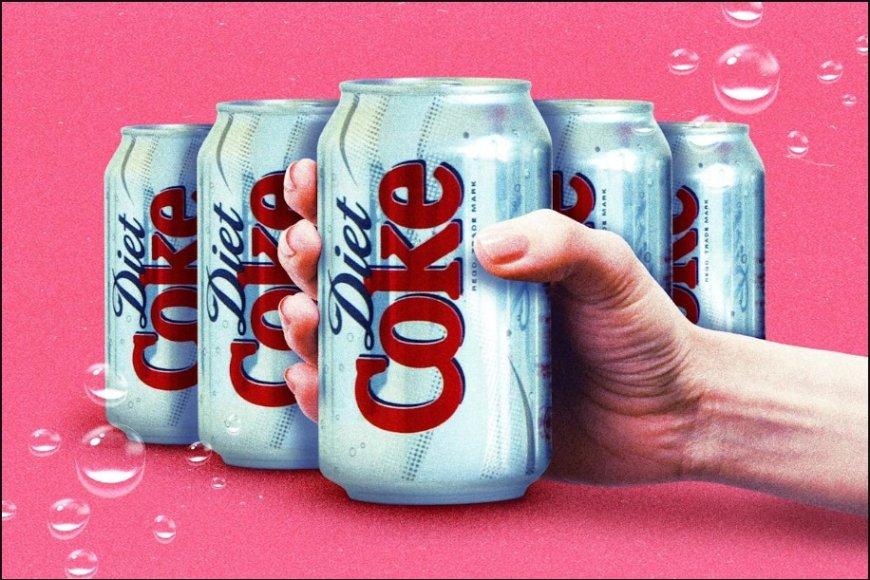Diet Coke: A Deep Dive into the World’s Most Iconic Sugar-Free Soft Drink

Introduction
In the ever-evolving world of health-conscious living, Diet Coke remains one of the most popular low-calorie beverages globally. Launched in 1982 by The Coca-Cola Company, this sugar-free alternative to the original Coca-Cola formula quickly became a staple among consumers looking to reduce their sugar intake without giving up fizzy refreshment.
This article offers a professional and detailed look at Diet Coke: its ingredients, history, popularity, controversies, and nutritional value. We'll break the information down using headings, tables, and list formats to make it easy to digest — just like the beverage itself.
The Origin and Rise of Diet Coke
A Brief History
Diet Coke was introduced in the U.S. in 1982 as Coca-Cola's first sugar-free cola. It was developed in response to growing demand for low-calorie options. Interestingly, Diet Coke does not use the exact Coca-Cola Classic formula with artificial sweeteners — it has its own unique flavor profile.
Key Milestones
| Year | Event |
|---|---|
| 1982 | Diet Coke launched in the U.S. |
| 1983 | Diet Coke becomes the No. 1 diet soft drink in the U.S. |
| 2005 | Coca-Cola Zero introduced as a different low-calorie alternative |
| 2018 | Diet Coke undergoes a major rebranding with new flavors and a sleeker can design |
What's Inside a Can of Diet Coke?
Despite being calorie-free, Diet Coke still packs a punch when it comes to flavor and fizz. Let’s take a closer look at the ingredients and nutritional breakdown of a standard 12 fl oz (355 ml) can.
Nutritional Facts of Diet Coke (Per 12 fl oz can)
| Nutrient | Amount |
|---|---|
| Calories | 0 |
| Total Fat | 0g |
| Sodium | 40mg |
| Total Carbohydrates | 0g |
| Sugars | 0g |
| Protein | 0g |
| Caffeine | 46mg |
Common Ingredients in Diet Coke
-
Carbonated water – The base of all colas, provides the fizz.
-
Caramel color – Gives the drink its dark brown hue.
-
Aspartame – The primary artificial sweetener.
-
Phosphoric acid – Adds tanginess and acidity.
-
Potassium benzoate – Preserves freshness.
-
Natural flavors – The proprietary mix that gives Diet Coke its signature taste.
-
Caffeine – Acts as a mild stimulant.
Diet Coke vs. Other Soft Drinks
Diet Coke is often compared to other sugar-free beverages. Here’s how it stacks up:
Comparison of Diet Coke, Coca-Cola Classic, and Coke Zero Sugar
| Feature | Diet Coke | Coca-Cola Classic | Coke Zero Sugar |
|---|---|---|---|
| Calories | 0 | 140 | 0 |
| Sugar Content | 0g | 39g | 0g |
| Main Sweetener | Aspartame | High-fructose corn syrup | Aspartame & Acesulfame K |
| Taste Profile | Lighter, crisper | Rich, sweet | Closer to classic Coke |
| Target Demographic | Health-conscious adults | General consumers | Younger demographic |
Controversies and Health Concerns
While Diet Coke is popular among millions, it's not without criticism.
Aspartame and Health
Aspartame, a widely used artificial sweetener, has been the subject of numerous studies. Although approved by food safety authorities like the FDA, EFSA, and WHO, some claim it can cause headaches, digestive issues, or even long-term metabolic effects. However, there is no conclusive evidence proving such claims when consumed in moderation.
The Diet Soda Paradox
There is ongoing debate around the "diet soda paradox" — the idea that diet sodas may contribute to weight gain, cravings, or insulin resistance due to their artificial sweetness. However, findings are inconclusive and often based on observational data rather than direct causation.
Common Criticisms of Diet Coke
-
Artificial sweeteners may confuse hunger signals.
-
May erode tooth enamel due to acidity.
-
Links to metabolic disorders (inconclusive evidence).
-
Environmental impact of plastic and aluminum packaging.
Diet Coke in Pop Culture and Marketing
Branding and Influence
Diet Coke is a brand powerhouse. It has maintained relevance through bold marketing, celebrity endorsements, and a sleek, minimalist aesthetic.
Iconic Moments in Diet Coke History
-
1980s: Heavy advertising and endorsement by Hollywood figures.
-
1990s: Became a favorite among fashion circles — often nicknamed “the model’s drink.”
-
2018: Launch of new fruity flavors like Ginger Lime and Feisty Cherry.
-
2020s: Renewed focus on sustainability and health positioning.
Diet Coke is more than just a beverage — it's a lifestyle symbol for many.
Pros and Cons of Drinking Diet Coke
Understanding the pros and cons can help consumers make informed decisions.
Pros vs. Cons
| Pros | Cons |
|---|---|
| Zero calories | Contains artificial sweeteners |
| No sugar | Potential health concerns (debated) |
| Good alternative for diabetics | Can be addictive due to caffeine |
| Convenient and widely available | Acidic — may impact dental health |
| Often used in weight management plans | Not a substitute for water or healthy beverages |
Conclusion
Diet Coke has stood the test of time, offering a sugar-free, calorie-free beverage to millions of fans worldwide. While it remains a favorite for those watching their sugar intake, it’s essential to consume it — like all processed products — in moderation. The health impacts of artificial sweeteners and diet sodas continue to be studied, but for now, Diet Coke provides a viable alternative for individuals seeking flavor without calories.
Whether you're enjoying it over lunch, using it as a caffeine pick-me-up, or sipping it during a break, Diet Coke continues to be one of the most iconic drinks of modern culture.
Tips for Consuming Diet Coke Responsibly
-
Limit daily intake to one can to avoid overconsumption of artificial sweeteners.
-
Drink water alongside to balance acidity and stay hydrated.
-
Avoid late-night consumption due to caffeine content.
-
Use a straw to minimize contact with teeth.
-
Stay updated with new research on artificial sweeteners and health.





























